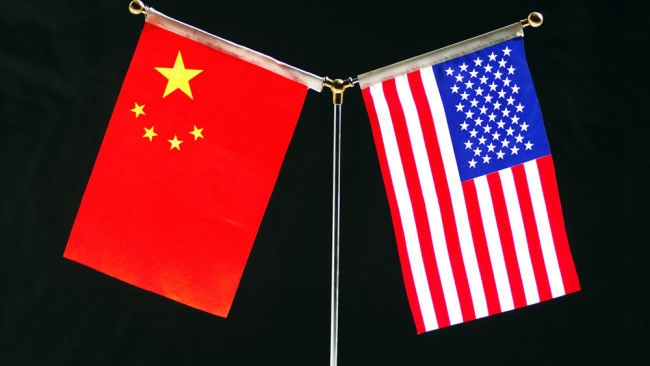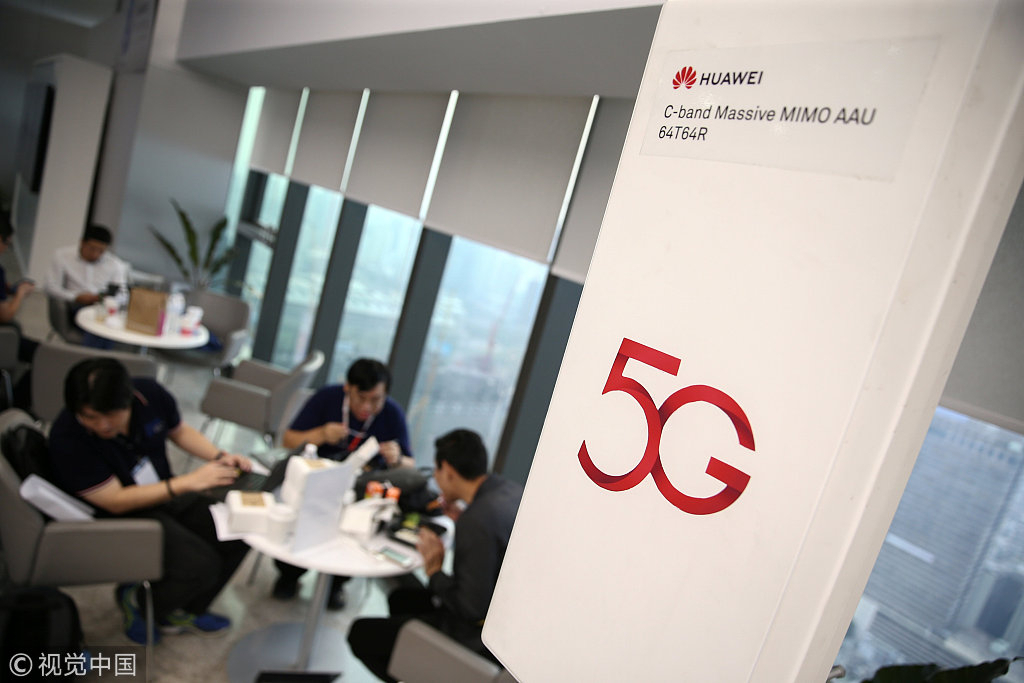
Opinion
12:05, 30-May-2019
China has no interest in displacing the United States

Editor's Note: The following is an edited translation of a commentary that was first published on the Chinese-language "Commentaries on International Affairs." The translated version first appeared on China Plus, May 29. The article reflects the author's opinion, and not necessarily the views of CGTN.
Some American politicians have recently claimed that China is catching up with the United States in economic terms and that China wants to replace America as the world's leading superpower. But China has never made it a goal to take the place of the United States. Rather, these claims reflect an American paranoia about their place in the world.
The United States firmly established itself as the world's only superpower at the end of the Cold War. Up until now, it has been far in advance of other countries in terms of the size of its economy, the strength of its financial system, its advanced technology, and its military superiority.
According to the Stockholm International Peace Research Institute, American military spending exceeded 640 billion U.S. dollars in 2018, "almost as much on its military in 2018 as the next eight largest-spending countries combined."
Despite this privileged position, some in the United States can never feel secure enough because they have always been obsessed with absolute superiority. The United States dragged down the Soviet Union with an arms race, suppressed the rise of Japan with unfair trade and currency exchange deals, and used all kinds of excuses to launch assaults against a slew of countries.

A photo was taken in Atlanta, Georgia, May 17, 2019. /China Plus Photo
A photo was taken in Atlanta, Georgia, May 17, 2019. /China Plus Photo
Ironically, after succeeding in all of these foreign policy adventures, the United States became even more sensitive and suspicious, anxiously looking around for the next potential opponent.
After 40 years of reform and opening-up, China's economic and technological strength has developed rapidly. The gap between China and the United States has narrowed, but it still remains large. Despite this, the United States National Security Strategy identified China as a strategic competitor in 2017 for the first time.
The United States has recently escalated its efforts to contain China. It has exerted pressure on China during trade negotiations and used its state power to cripple Chinese tech companies. Political figures including Mike Pence, Mike Pompeo and Steve Bannon have spared no effort to smear China. And Kiron Skinner, the director of policy planning at the State Department, described the relationship between America and China as being a clash of civilizations.
The increasing hostility in the United States towards China is being fueled by Washington's hegemonic behavior, which is being increasingly resisted as globalization spreads throughout the world. This pushback is making Americans afflicted with superpower paranoia even more fearful about their declining strength and influence across the globe.
The root cause of the American predicament is that the country is "the most warlike nation in the history of the world," as former U.S. president Jimmy Carter said. He was talking about the American habit of spending money on wars overseas rather than investing in infrastructure at home. By comparison, China's government believes that bellicosity will eventually lead to the fall of a country, regardless of how strong it is.

A Huawei 5G device on display at an exhibition in Bangkok, Thailand, January 30, 2019. /VCG Photo
A Huawei 5G device on display at an exhibition in Bangkok, Thailand, January 30, 2019. /VCG Photo
China's per capita GDP stood close to 10,000 U.S. dollars last year – less than one-sixth of that of the United States. More than 16 million people in China have yet to be lifted out of poverty. China still needs to spend a lot of energy and time transforming its economic structure and tackling the imbalance in development between its urban and rural areas and among its different regions.
For the Chinese government, economic construction and national development is the most important task, so that its people can live a wealthier, happier, and better life. It doesn't have the intention, nor does it have the resources, to replace the United States. China will continue to pursue peaceful development, which in turn will offer greater opportunities for economic growth and development to other nations.
Some American politicians claim that China is pursuing global hegemony. Although some make this claim out of misunderstanding, others are out to make mischief in the hope that they can profit from a clash between China and the United States – a dangerous game indeed.
What the world needs is for the two countries to resolve their disputes rationally. If this doesn't happen, the damage will spread beyond their borders and affect the wider world.
(If you want to contribute and have specific expertise, please contact us at opinions@cgtn.com.)

SITEMAP
Copyright © 2018 CGTN. Beijing ICP prepared NO.16065310-3
Copyright © 2018 CGTN. Beijing ICP prepared NO.16065310-3